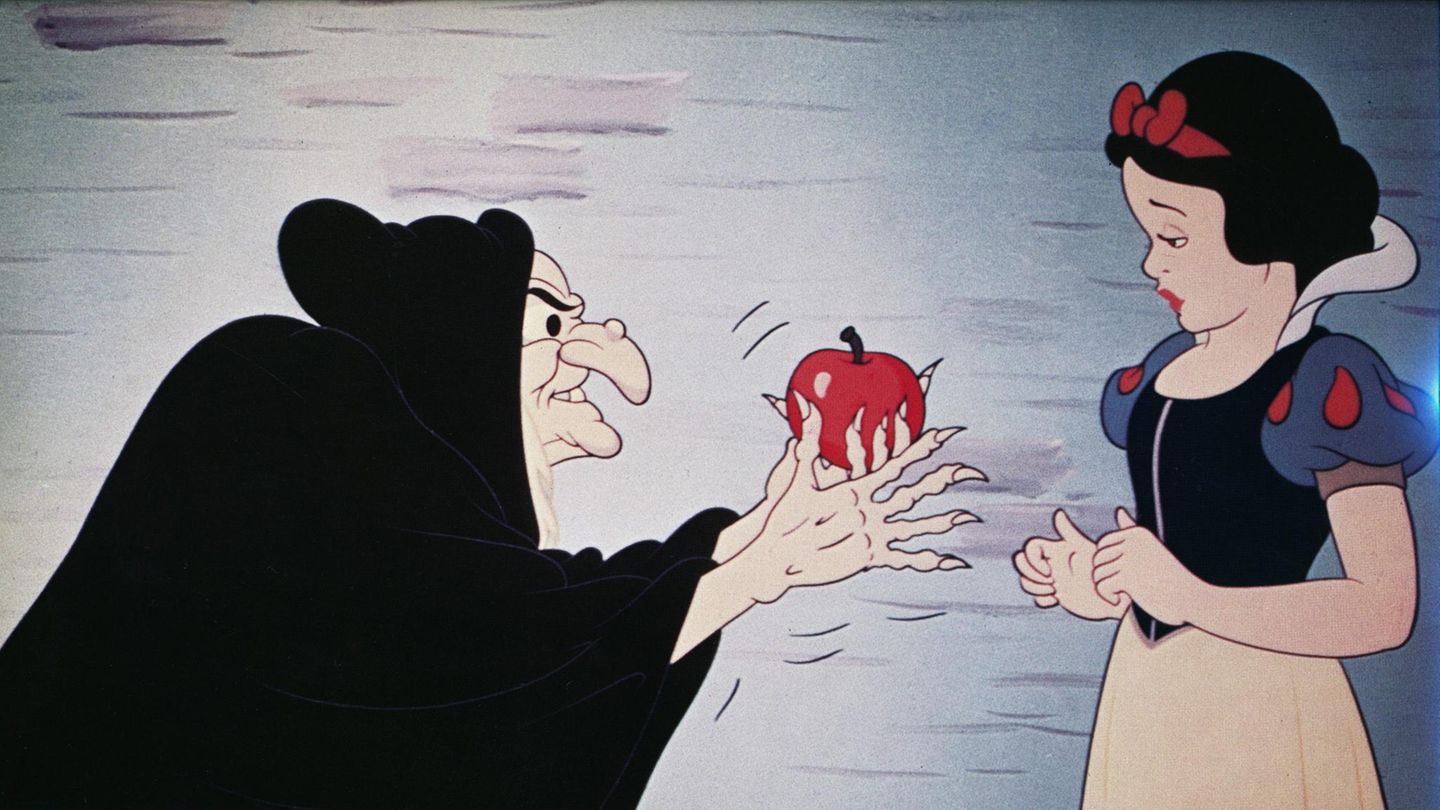Snow White, Mulan and Co.
No happy ending – why Disney princesses need a doctor
Copy the current link
For many girls, being a Disney princess is a dream. What they don’t know: Life in fairytale land makes you sick. Researchers have analyzed the health risks.
Disney princesses have it good. They always get their prince, they always live happily ever after. A fantastic idea, right? A Dutch research team took a closer look at the lives of Snow White, Sleeping Beauty and Co. You can only advise against being a Disney princess because their medical records would be long in real life. In the Christmas edition of “British Medical Journal” They show the serious health risks Disney exposes its princesses to – from broken bones to rabies. The article is of course written with a wink and should be taken with humor.
Snow White learns several times that the road to a happy ending can sometimes be bumpy. The princess is indeed “the most beautiful in all the land”but that doesn’t help her at all. Isolated from the outside world, she is subjugated by her nasty stepmother and abused as a maid. Their social life is catastrophic and therefore there is a risk of depression, anxiety and cardiovascular problems and of dying an early death. The seven dwarves save you from loneliness. But even they cannot save the princess from being poisoned with the apple.
Disney princesses – sick and broken?
Things aren’t much better for Sleeping Beauty. Lying around all the time takes a toll on the body. Anyone who sleeps for 100 years is likely to wake up with muscle atrophy and pressure sores. There are also risks such as cardiovascular disease, stroke, obesity and diabetes.
And Rapunzel’s beautiful, strong hair? Well, they probably wouldn’t be so beautiful and strong for long. Since they are misused as conductors and the hair follicles and scalp are subjected to extreme stress, permanent hair loss would probably occur in the long term. The researchers believe traction alopecia – hair loss caused by strong tensile stress – and headaches and scalp pain are possible.
According to the researchers, Cinderella, also known as Cinderella, who is constantly exposed to dirt and dust, would probably develop an occupational lung disease and the magical dust would even worsen the health situation.
Bella, who gets closer to the beast than is good for her, has a good chance of getting rabies. Jasmine, Aladdin’s lover, lives a similarly dangerous life. It’s not just that she threatens to become isolated behind the walls of the palace, which has an emotional impact. Her pet is also a danger to her – simply because it is a tiger. The researchers also warn of an impending zoonotic disease.
Simply magical: The ten most popular castles in Europe

1st place: Edinburgh Castle, Scotland
Edinburgh Castle sits atop Castle Rock. Anyone who has climbed the mountain can enjoy a wonderful view of the Scottish metropolis – and embark on a journey through time. The history of the castle goes back to the 12th century. Every August, travelers can also listen to the sounds of the bagpipes in the square in front of the castle and experience the many light installations at the Royal Edinburgh Military Tattoo. Numerous military bands perform – and the outdoor festival takes place in all weathers.
© robertharding / Imago Images
Back
Further
Researchers demand: Disney should protect its princesses
Mulan, the brave warrior, is exposed to another danger: her own family. According to the research team, this puts such immense pressure on them that it could have an impact on their psyche. According to the authors, women are increasingly suffering from mental illnesses and are being forcefully forced into a life they do not want to lead for reasons of honor.
That leaves Pocahontas, the orchid among the Disney princesses. She doesn’t shy away from danger. According to the researchers, this is exactly what could be her downfall. There’s her famous first cliff jump, with a fall time of nine seconds and an estimated fall height of 252 meters. Daring? Probably more deadly. Such a jump would cause Pocahontas multiple broken bones rather than bring her into harmony with nature, the authors write.
The Disney Princesses, a bunch of sick, broken women? The fairytale land, a land full of dangers and diseases? In any case, the researchers are calling on Disney to take action. Disney princesses could only lead healthy lives if measures were taken. Her suggestion: mindfulness training, psychotherapy, training in dealing with wild animals and protective measures against pathogens.
Source: Stern
I’m Caroline, a journalist and author for 24 Hours Worlds. I specialize in health-related news and stories, bringing real-world impact to readers across the globe. With my experience in journalism and writing in both print and online formats, I strive to provide reliable information that resonates with audiences from all walks of life.




